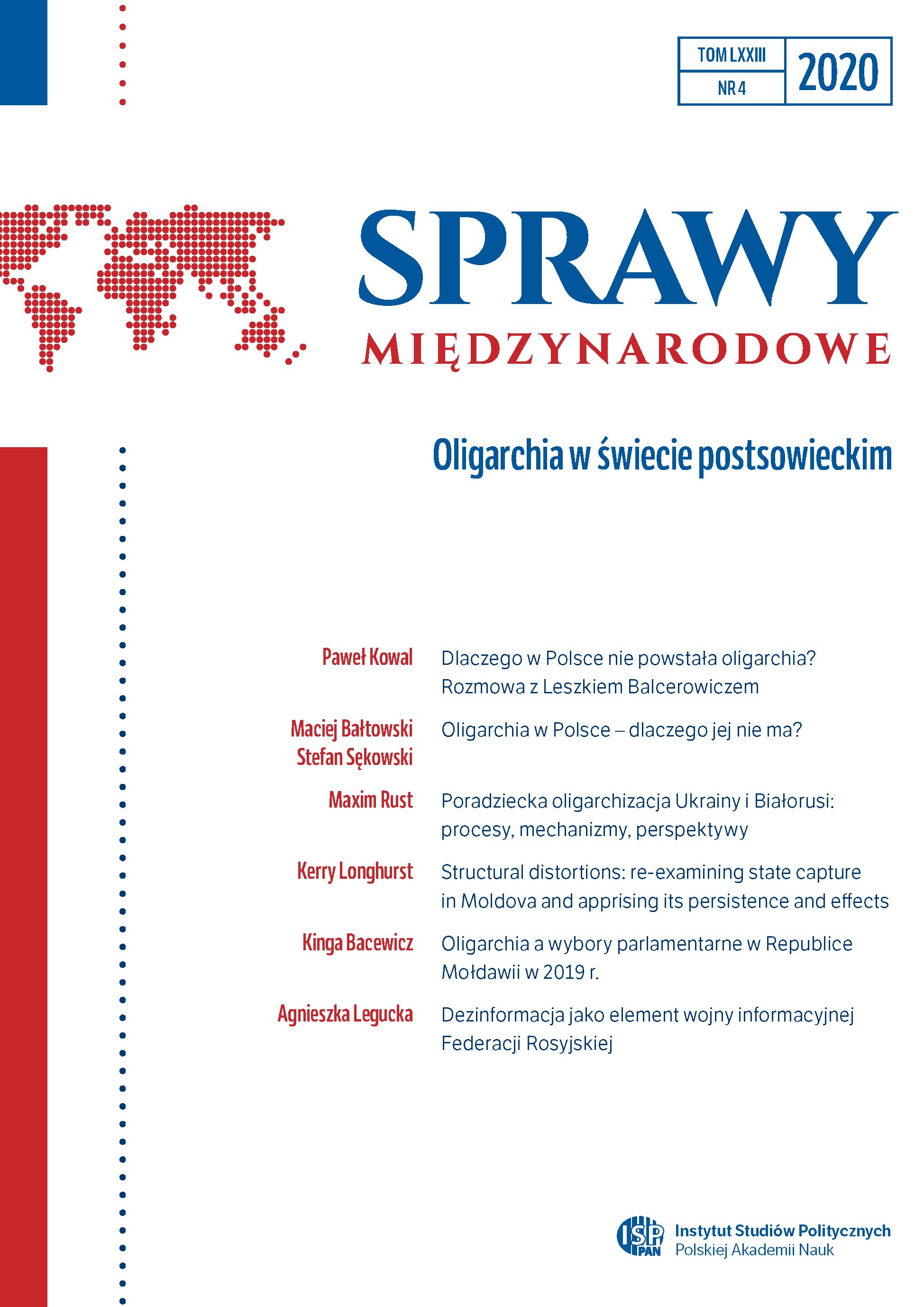Structural Distortions: Re-examining State Capture and Apprising its Persistence and Effects
Structural Distortions: Re-examining State Capture and Apprising its Persistence and Effects
Author(s): Kerry LonghurstSubject(s): Politics / Political Sciences, Politics, Economy, Government/Political systems, Socio-Economic Research
Published by: Instytut Studiów Politycznych PAN
Keywords: Moldova; state capture; oligarchy; corruption; Eastern Europe
Summary/Abstract: Moldova is a textbook-plus case of a captured state, a condition synonymous with a number of post-Soviet countries. Moldova’s state capture resulted from its post-1991 partial reform path which enabled the emergence of oligarchs able to seize core state functions and distort business environments to the detriment of the public good. Moldova is significant because of the extremity of its state capture with a single oligarchic network shaping the rules of the game in political, economic, social and to a degree foreign policy terms. This situation created a vicious circle, which hindered Moldova’s development, reinforced poverty and the hollowing out of the state through mass migration. 2021 offers a vantage point to consider whether Moldova can shed its capture via the anti-corruption reform programme set out by president Maia Sandu or whether prospects for change are more likely to be impeded by persistent vested interests keen to keep the status quo. Future remedies for Moldova hinge on there being palpable socio-economic improvements to people’s lives, twinned with successful prosecutions of those responsible for large-scale acts of corruption and embezzlement. Aside from this, reforms need to hone in on improving the business environment, the weaving in of women’s empowerment and providing solutions to stem outwards migration.
Journal: Sprawy Międzynarodowe
- Issue Year: 73/2020
- Issue No: 4
- Page Range: 67-93
- Page Count: 27
- Language: English

